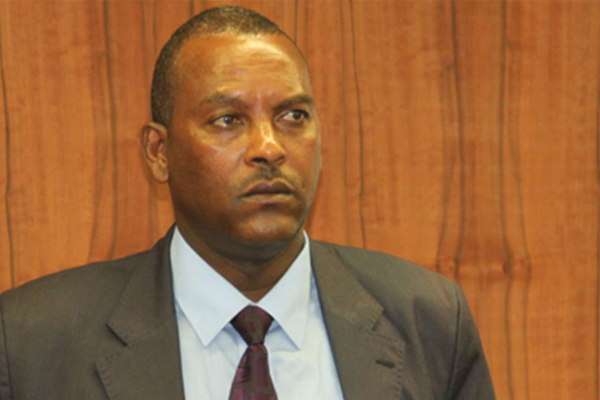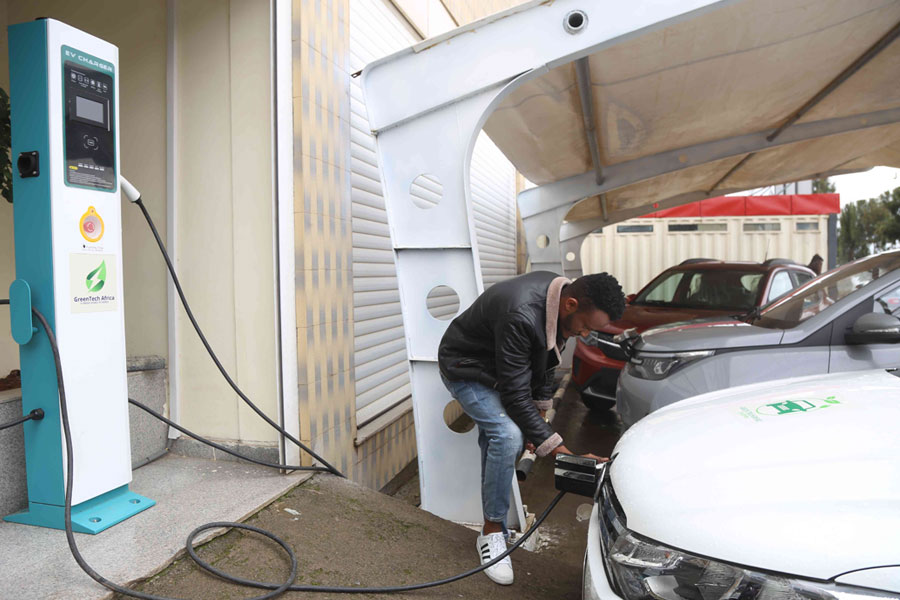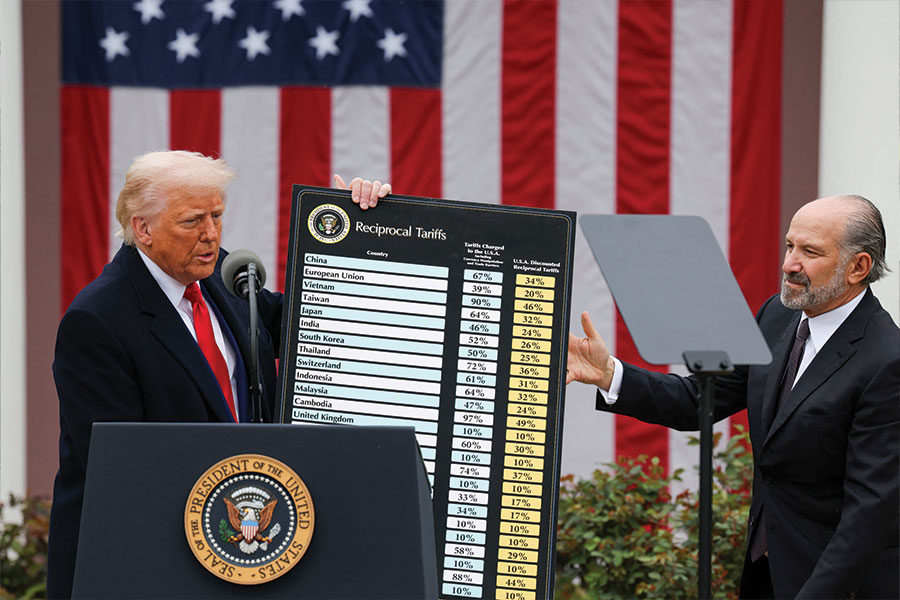
Jul 21 , 2024
By AKSAH ITALO ( FORTUNE STAFF WRITER )
Ethiopia is set to introduce a revised electric tariff system within the next two months. The new tariffs will be up to three times higher than current rates for households and could substantially increase costs for commercial and industrial users. The Ethiopian Energy & Petroleum Authority (EPA) secured approval from the Council of Ministers for proposed amendments designed to align electricity costs with current economic realities.
The revised electricity tariffs are part of a broader energy reform plan to attract private investment in the sector. The current low tariffs have deterred private companies from investing in new power generation capacity. The government hopes that higher tariffs will make the sector more attractive to investors and help meet the country's growing energy demand.
According to Bahiru Oljira, head of electric competency certification identification at the Authority, the rationale behind the revision follows extensive studies conducted to analyse the cost structure of power generation, transmission, and distribution, particularly in light of rising inflation. He said these calculations factored in pricing efficiency, revenue requirements, operational costs, and the expenses of Ethiopian Electric Power (EEP) and Electric Power Utility (EEU).
"Electricity prices have not been reflective of costs incurred," Bahiru said.
He noted that the financial burden hindered the ability of suppliers to improve infrastructure and deliver quality services. Scheduled revisions will occur every four years, with potential mid-term adjustments based on significant economic or social changes.
"This ensures the tariffs remain relevant and adaptable," he said.
For bulk supply, the power generation retail tariff has an increase of one Birr at 1.98 Br/Hr while the transmission tariff is set at 800 Br/kWh. Distribution unit prices are subdivided into households, commercial, industrial, and streetlights, with quarterly adjustments for the private sectors.
Ethiopia ranks among the bottom three countries in electricity access on the continent, with 56 million people, half of its population, lacking electricity. Currently, services reach only 4.4 million households who will see rates up to six Birr/KwH. Industrial tariffs vary from four Birr for low voltage, 2.9 Br for middle voltage, and two Birr for high voltage, representing up to a fourfold increase from previous rates.
Commercial and streetlight tariffs will also increase significantly.
The Authority approved the tariffs after reviewing proposals from the Ethiopian Electric Utility and Ethiopian Electric Power, who identified cost-based increments to encourage suppliers to align energy production with demand. The next phase involves formulating an implementation plan detailing how the tariffs will be applied over the next four years.
"We are now preparing the plan," Bahiru said.
The country revised tariffs at the end of 2018, following the first revision in 2006. According to Bahiru, previous revisions were not well-considered, burdening services for years.
The National Electrification Program (NEP), launched in 2017, aims for universal electricity access by 2025, targeting 100pc electrification with 65pc of new connections through grid extension and 35pc through investment in decentralised off-grid technologies.
Gemechu Yimer, planning director at EEU, stated that revised tariffs would help improve cost recovery, maintenance, service automation, and infrastructure. However, Gemechu acknowledged that tariffs alone might not fully address the challenges posed by grid maintenance costs and ongoing energy deficits.
"A tariff increment can only do so much," he said.
EEP and EEU, established as separate entities 13 years ago, have distinct roles, with EEU managing electricity distribution and purchasing bulk power for resale. Generating around 5,200MW of energy from hydroelectric sources, the sector has been vulnerable to climate-related disasters and hydrological variations.
Andualem Siae, EEP's corporate planning director, said the revision was requested due to financial liabilities, with EEP being one of the most indebted public enterprises. A parliamentary report revealed over 1.2 billion Br was lost during domestic power sales.
At the UK-Ethiopia Green Technology Forum, EEP's CEO, Ashebir Balcha, emphasised that the current electricity tariff is not cost-reflective, failing to justify production and operation expenses. EEP conducted a study through an external consultant financed by the World Bank before submitting its findings to the Authority.
A National Association of Regulatory Utility Commissioners report suggests that tariff levels should support the long-term growth and sustainability of the electricity sector. It recommends establishing an independent regulator and cost-reflective pricing to facilitate appropriate consumer response.
Ethiopia’s energy policy, led by the Ministry of Water & Energy, aims to meet growing energy demand with renewables and increase private investment. Mesfin Dabi, the Ministry's lead executive of electrification and energy information, said increasing tariffs is part of energy reforms to attract private investment. He argued that low tariffs have deterred private investors from committing substantial funds to energy supply.
"Private investment has been discouraged," he told Fortune.
Proponents like Green-space Energy Plc, an independent power developer, highlight the potential benefits of venturing into the retail market. Deputy CEO Biniyam Tufa said despite their interest, unattractive tariffs have hindered their investments, with a return on investment taking up to 10 years.
"We have been discouraged to enter in," he said.
The company has developed mini-grids for rural and urban households but has left electricity provision to EEU. Biniyam believes the new tariff amendments will open doors for power retailing and foreign partnerships.
Experts argue that energy efficiency should be central to tariff increases. Yemanebrhan Kiros, founder of Yomener Energy Auditing & Engineering Plc, believes that higher electricity prices will encourage more prudent power use in factories and households. Yemanebrhan also suggests net metering, allowing households and investors to both consume electricity and provide power from solar panels, reducing utility bills.
"Tariff reforms should encourage efficient use of energy," he said.
PUBLISHED ON
Jul 21,2024 [ VOL
25 , NO
1264]

Fortune News | Sep 03,2022

Fortune News | Feb 25,2023

Fortune News | Sep 28,2019

Viewpoints | Aug 10,2025

Radar | Dec 19,2021

Dec 22 , 2024 . By TIZITA SHEWAFERAW
Charged with transforming colossal state-owned enterprises into modern and competitiv...

Aug 18 , 2024 . By AKSAH ITALO
Although predictable Yonas Zerihun's job in the ride-hailing service is not immune to...

Jul 28 , 2024 . By TIZITA SHEWAFERAW
Unhabitual, perhaps too many, Samuel Gebreyohannes, 38, used to occasionally enjoy a couple of beers at breakfast. However, he recently swit...

Jul 13 , 2024 . By AKSAH ITALO
Investors who rely on tractors, trucks, and field vehicles for commuting, transporting commodities, and f...

Oct 25 , 2025
The regulatory machinery is on overdrive. In only two years, no fewer than 35 new pro...

Oct 18 , 2025
The political establishment, notably the ruling party and its top brass, has become p...

Oct 11 , 2025
Ladislas Farago, a roving Associated Press (AP) correspondent, arrived in Ethiopia in...

Oct 4 , 2025
Eyob Tekalegn (PhD) had been in the Governor's chair for only weeks when, on Septembe...